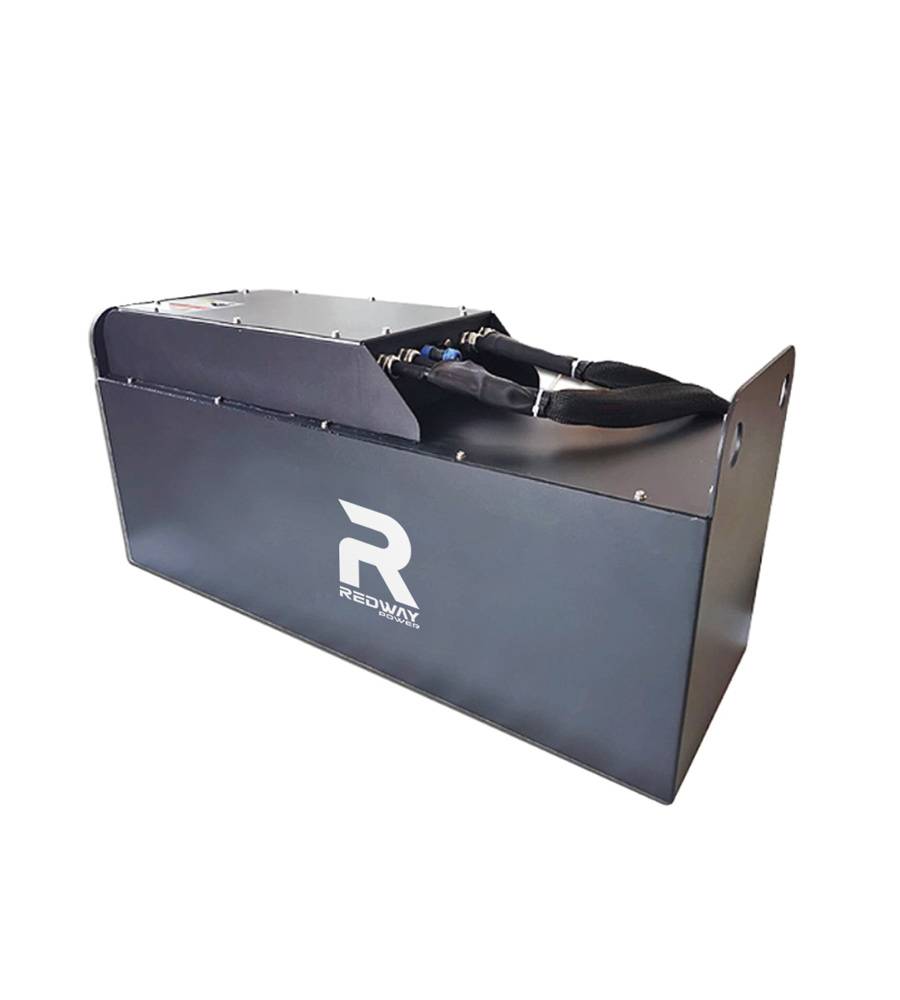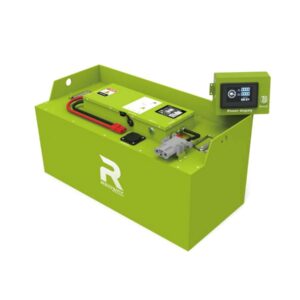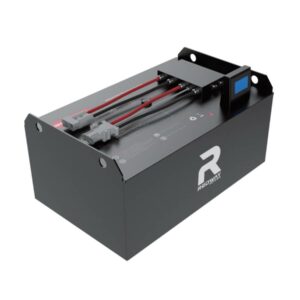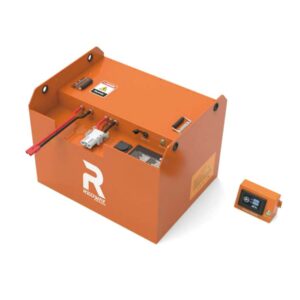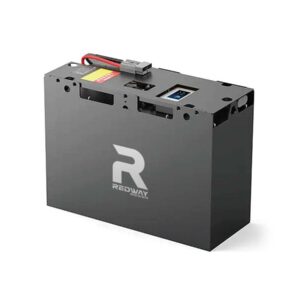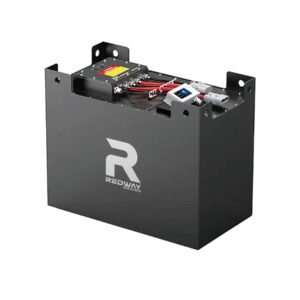Description
Our 51.2V 500Ah LiFePO4 battery delivers 24kWh of energy in a compact, industrial-grade design. As a leading lithium battery manufacturer, we specialize in high-performance solutions for OEM and wholesale clients. Built with advanced LiFePO4 technology, this battery ensures longevity, safety, and reliability for demanding applications like energy storage systems and heavy-duty equipment.
Key Features
High Energy Density: With 24kWh capacity and a slim profile (645 x 196 x 573 mm), this lithium battery maximizes power output while minimizing footprint.
Robust Performance: Supports 300A continuous charge/discharge and 900A peak current (5s) for high-demand scenarios.
Extended Cycle Life: Over 4,000 cycles at 80% DOD ensure long-term value for OEM integrations.
All-Weather Durability: Operates in -20¡æ to 60¡æ environments with IP65 protection and metal casing.
Smart BMS: Monitors SOC, temperature, and voltage while preventing overcharge, short circuits, and other risks.
Product Description
Engineered for reliability, this 51.2V LiFePO4 battery combines 260 kg of rugged construction with cutting-edge lithium technology. Its natural cooling system eliminates complex maintenance, and the 40V¨C58.4V operating range ensures stable performance under variable loads. Ideal for forklifts, renewable energy storage, and industrial machinery, the battery features RS485, CAN-bus, and 4G communication for seamless integration into OEM systems.
Durability & Safety
The metal shell and IP65 rating protect against dust, water, and impacts, making it suitable for harsh environments. Advanced thermal management maintains efficiency across extreme temperatures, while the multi-layered BMS safeguards against overcurrent, overtemperature, and voltage fluctuations.
Applications & Compatibility
This lithium battery is tailored for high-capacity needs in warehouses, solar installations, and telecom infrastructure. Compatible with most inverters and charging systems, it supports 5-year warranty-backed operations, reducing downtime and replacement costs for wholesale buyers.
The 48V 500Ah LiFePO4 forklift battery delivers high-capacity, reliable power with fast charging and long cycle life, making it an ideal choice for industrial forklifts. Featuring advanced Battery Management System (BMS) technology, robust safety protections, and lightweight design, it enhances forklift performance, reduces maintenance, and lowers total cost of ownership compared to traditional lead-acid batteries.
How Does the 48V 500Ah LiFePO4 Forklift Battery Operate?
This battery consists of lithium iron phosphate cells arranged to provide a nominal voltage of 48V and a capacity of 500Ah, delivering approximately 24kWh of energy. It supports continuous discharge currents up to 300A and peak discharge currents of 900A (for short bursts), ensuring forklifts can handle heavy loads and operate efficiently throughout shifts. The integrated BMS monitors voltage, current, temperature, and cell balance to optimize performance and protect against overcharge, over-discharge, short circuits, and thermal issues.
What Are the Key Technical Specifications of the 48V 500Ah LiFePO4 Forklift Battery?
| Specification | Details |
|---|---|
| Nominal Voltage | 48V (51.2V typical) |
| Capacity | 500Ah |
| Energy | Approx. 24kWh |
| Chemistry | Lithium Iron Phosphate (LiFePO4) |
| Continuous Discharge Current | 300A |
| Peak Discharge Current | 900A (5 seconds) |
| Charge Current | Up to 300A |
| Cycle Life | Over 4000 cycles at 80% DoD |
| Operating Temperature Range | -20°C to 60°C |
| Weight | Approx. 250–350 kg |
| Dimensions (L×W×H) | ~780 × 320 × 570 mm |
| Protection Rating | IP65 |
| Communication Protocols | RS485, CAN-bus, 4G (optional) |
| Safety Certifications | UN38.3, MSDS, UL1642, IEC62619 |
Which Forklift Models and Applications Are Best Suited for This Battery?
The 48V 500Ah LiFePO4 battery is compatible with a wide range of electric forklifts, pallet jacks, and material handling equipment. It is well-suited for warehouses, manufacturing plants, logistics centers, and outdoor industrial environments requiring high-capacity, reliable power with minimal maintenance and fast turnaround times.
Why Is LiFePO4 Chemistry Preferred Over Lead-Acid Batteries for Forklifts?
LiFePO4 batteries provide superior thermal stability and safety, significantly reducing risks of thermal runaway and acid leaks common in lead-acid batteries. They offer longer cycle life—typically 3 to 6 times that of lead-acid—faster charging, and stable voltage output, improving forklift uptime and reducing total cost of ownership. Additionally, LiFePO4 batteries are maintenance-free and environmentally friendly.
How Does the Battery Management System (BMS) Enhance Safety and Longevity?
The advanced BMS continuously monitors individual cell voltages, temperature, and current, providing protections against overcharge, over-discharge, overcurrent, short circuits, and overheating. It balances cells to maximize capacity and lifespan. The system supports remote monitoring via RS485, CAN-bus, and optional 4G connectivity, enabling real-time diagnostics and predictive maintenance.
When Should Fleet Operators Consider Upgrading to a 48V 500Ah LiFePO4 Battery?
Operators should consider upgrading when lead-acid batteries show diminished runtime, increased maintenance costs, or when expanding forklift fleets. The 48V 500Ah LiFePO4 battery’s long cycle life, rapid charging, and smart monitoring offer significant operational and financial benefits, reducing downtime and enhancing productivity.
Where Is the Ideal Environment for Operating and Storing This Forklift Battery?
Optimal performance occurs in environments with ambient temperatures between -20°C and 60°C. The IP65-rated enclosure protects against dust and water ingress, making it suitable for indoor and outdoor industrial settings. Proper storage in dry, temperature-controlled areas extends battery life.
Does the Battery Support Fast Charging and High Discharge Rates?
Yes, it supports continuous discharge currents of 300A and peak discharge currents up to 900A for short bursts, meeting the power demands of heavy-duty forklift operations. Fast charging at up to 300A reduces downtime during shift changes, improving operational efficiency.
Has Heated Battery Incorporated Advanced Features in This Forklift Battery?
Heated Battery integrates premium LiFePO4 cells with a smart BMS to ensure safety, reliability, and longevity. Optional features include real-time cloud monitoring, 4G connectivity, and customizable communication protocols. Heated Battery’s rigorous quality control and certifications guarantee a durable, high-performance product tailored to demanding industrial applications.
Can This Battery Be Customized for Specific Forklift Requirements?
Yes, Heated Battery offers customization options including capacity, size, communication protocols, and safety features to fit various forklift models and operational needs, ensuring seamless integration and optimal performance.
How Does the Weight of the 48V 500Ah LiFePO4 Battery Compare to Lead-Acid Alternatives?
The LiFePO4 battery weighs approximately 250–350 kg, significantly lighter than equivalent lead-acid batteries that often exceed 500 kg. This weight reduction improves forklift energy efficiency, maneuverability, and reduces wear on mechanical components.
What Maintenance Is Required for the 48V 500Ah LiFePO4 Forklift Battery?
Maintenance is minimal. Routine inspection of terminals and connectors is recommended, along with monitoring battery health through the BMS or optional remote systems. Unlike lead-acid batteries, no electrolyte refilling or equalization charging is necessary, reducing labor and operational costs.
Heated Battery Expert Views
“The 48V 500Ah LiFePO4 forklift battery from Heated Battery represents a state-of-the-art solution for industrial material handling. Its combination of high capacity, advanced lithium chemistry, and intelligent BMS delivers outstanding safety, longevity, and performance. The battery’s lightweight design and rapid charging capabilities translate into increased forklift uptime and operational efficiency. Heated Battery’s dedication to quality and innovation ensures this battery meets the rigorous demands of modern industrial fleets.”

